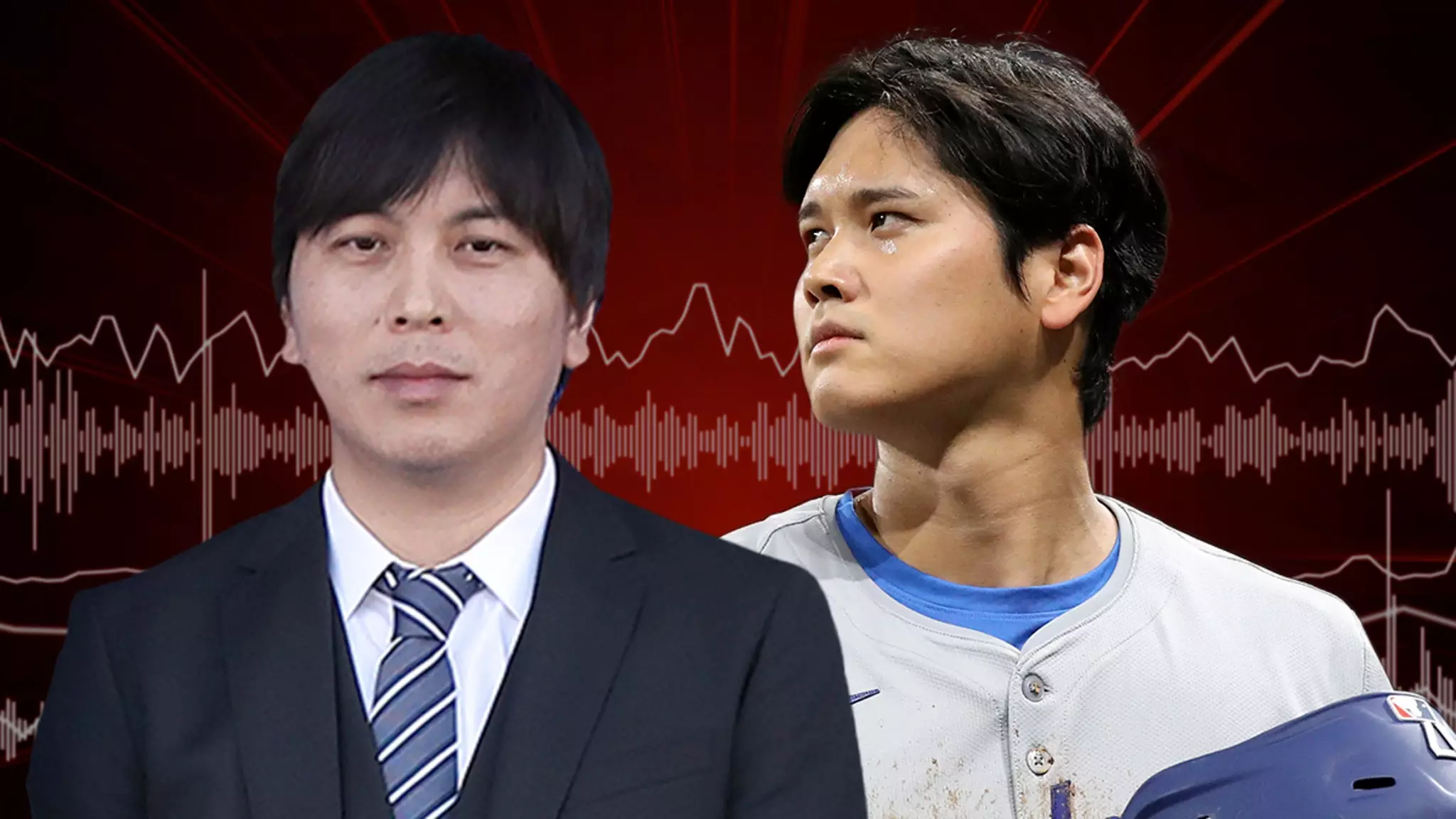In a startling revelation, the story of Shohei Ohtani’s former interpreter, Ippei Mizuhara, has recently surfaced, casting a shadow over the star athlete’s trust and financial management. Mizuhara, who was once viewed as a vital support system for Ohtani, is now facing severe legal consequences for a shocking scheme that involved impersonating Ohtani over a phone call with a bank, ultimately attempting to siphon off $200,000. The deception was revealed through the release of audio that clearly captures Mizuhara posing as the baseball sensation.
The three-and-a-half-minute phone call showcased Mizuhara’s audacious act as he misleads the bank’s representative. Without any hesitation, he identifies himself as “Shohei Ohtani,” successfully navigating a series of verification questions intended to authenticate the identity of the account holder. His ability to provide the necessary codes and convincing responses underscores the elaborate lengths he was willing to go to exploit his position.
Motivations Behind the Fraud
The motivations behind Mizuhara’s actions are deeply troubling. Federal prosecutors have indicated that the former interpreter’s actions were not merely opportunistic; rather, they stemmed from deeper issues, including significant gambling debts. This disturbing revelation implies that Mizuhara may have been living a double life, maintaining an image of loyalty and support while concurrently engaging in self-destructive behavior that ultimately put Ohtani’s financial security at risk.
In the pursuit of his gambling lifestyle, Mizuhara allegedly siphoned millions from Ohtani over their years of association. This highlights a disturbing pattern of betrayal where trust, once freely given in a professional capacity, was grotesquely abused for personal gain. The betrayal is further exacerbated by the fact that Mizuhara had established a close working relationship with Ohtani during his tenure with both the Angels and Dodgers.
Legal Consequences and Future Implications
As the fallout continues, Mizuhara is facing serious legal repercussions. After confessing to the theft and admitting to tax fraud, he struck a plea deal with federal prosecutors. They are now recommending a lengthy prison sentence of 57 months, which reflects the severity of his crimes. Mizuhara’s sentencing hearing is scheduled for February 6, and the outcome will not only impact his life but also serve as a cautionary tale in the realm of sports and personal finance.
This case raises important questions regarding trust and the measures athletes need to take to safeguard their financial interests. Ohtani’s experience emphasizes the need for vigilance when placing trust in those who manage or assist with personal and financial matters. As the situation stands, Mizuhara’s actions will likely lead to a reevaluation of how teams and athletes approach their relationships with interpreters and agents.
The story of Ippei Mizuhara serves as a stark reminder of the boundaries that can be crossed when personal and professional loyalties are exploited for selfish ends. The depth of betrayal involved in this case poses fundamental questions about trust in the sports industry and will undoubtedly resonate as a lesson for future generations of athletes.

